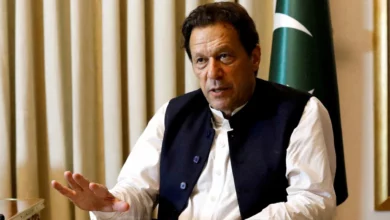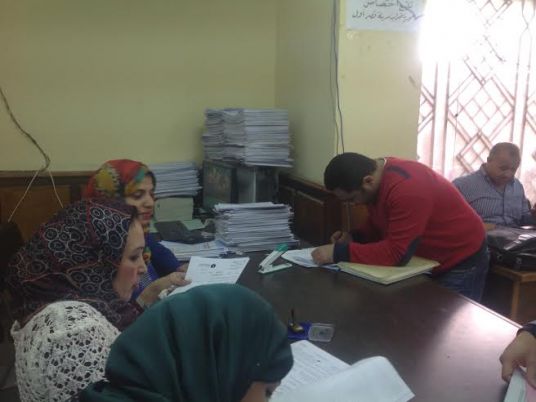State-run papers lead this morning with notes from Prime Minister Ahmad Shafiq’s meeting with chief-editors, in which he spoke of impending change in the government’s current cabinet, whereby it would rid itself of “undesired elements.”
Al-Ahram reports that Shafiq revealed that the new cabinet will not contain a ministry of information. The decision comes in response to widespread complaint about prevalent corruption within this ministry, especially under its last minister, Anas al-Fiqi, a long time confidante of Mubarak. The privately owned Al-Dostour downplays this part of Shafiq’s account by stating that “the future of the ministry of information remains unknown.”
State-run Al-Akhbar adds that the changes will take place within 48 hours. In a bolder and more revealing account, Al-Akhbar records Shafiq saying “Those ministers whom public opinion does not support will be changed, most critically the ministers of social solidarity and labor.”
Shafiq also said that vacant ministries–such as the ministries of culture, education and tourism–will be filled. Al-Akhbar reported that the prime minister promised “good news that will make the public happy with regards the state security apparatus,” without relaying further information. State security is the branch of the police most closely associated with stifling political expression and implementing Emergency Law by arbitrarily detaining and torturing dissidents.
While both Al-Ahram and Al-Akhbar reported Shafiq’s statement that 222 of 487 total political detainees would be released, Al-Akbar added that only five of the revolution’s youth were detained since 25 January and they would soon be released.
Privately-owned Al-Shorouk’s Wael Qandeel writes about his worries with regards to these promises and others. He reminds us that Shafiq, who is now attempting to win over the revolution’s youth, was appointed by toppled President Hosni Mubarak. He also reminds us that he labeled the demand for the president to step down as far-fetched and called for protesters to leave Tahrir Square when Mubarak decided to delegate some powers to Vice President Omar Suleiman. He also reminds us that, at a time when the youth insisted they would not leave the square and would only escalate their protests, Shafiq said Western armies surrounded the country. The claim proved unfounded.
Al-Shorouk reports on a meeting with an unnamed official from the Supreme Council of the Armed Forces, who pledges the ministerial changes that Shafiq refers to.
But the same source tells Al-Shorouk that the army instructed the committee responsible for amending the Constitution to limit the president’s power “so that the next president becomes only an image, while most powers are given to people.”
When asked about the national minimum wage of LE1200 per month demanded by ongoing labor protests, the military source tells Al-Shorouk that the demand is unrealistic and that, as per a study by the ministry of finance, the minimum wage could only be elevated to LE650 per month at this point. Egypt’s minimum wage currently stands at LE400, or about $69, per month.
Finally, the source tells the paper that Emergency Law will not be canceled. However, it will be suspended for the moment and only resorted to in political and environmental crises.
In further reporting on constitutional change, Al-Shorouk says that the constitutional committee is looking to add an article that stipulates the election of a vice president. It also reports that the committee is considering cancelling article 189–which stipulates that only the president can call for changes to the Constitution–to allow one third of the parliament to call for constitutional change.
Beyond promises for reform, Sunday's headlines and front pages remain flooded with news about corruption. State-owned Al-Ahram reads, “Every corrupt man will receive his due.” Headlines from Al-Akhbar read “The corruption news bulletin,” “100 former state officials and businessmen banned from traveling,” and “The tears of Ezz and al-Adly” in reference to steel tycoon and NDP figure Ahmad Ezz and former Minister of Interior Habib al-Adly, both of whom were detained on Friday with charges of corruption .
News about freezing Mubarak’s assets also lingered. Party-paper Al-Wafd says, based on local Swiss media reports, that an amount of 10 million Swiss francs (US$1,059,434) were frozen by Swiss banks. The assets reportedly belong to Mubarak, his family and five of his regime confidents.
Al-Shorouk’s Moataz Bellah Abdel Fattah looks to the future and beyond the issue the issue of past corruption. He writes of three worrying scenarios in the current transition: the reproduction of the old regime’s tycoons under new names and new institutions, the Muslim Brotherhood exploiting the power vacuum to assert control over the government, and the army refusing to relinquish power, in a similar scenario to what happened after the military coup in 1952. Accordingly, he calls for popular figures championed by the people–such as reformist Mohamed ElBaradei, Arab League head Amr Moussa and scientist Ahmad Zuweil–to assume governmental roles during the interim period.




